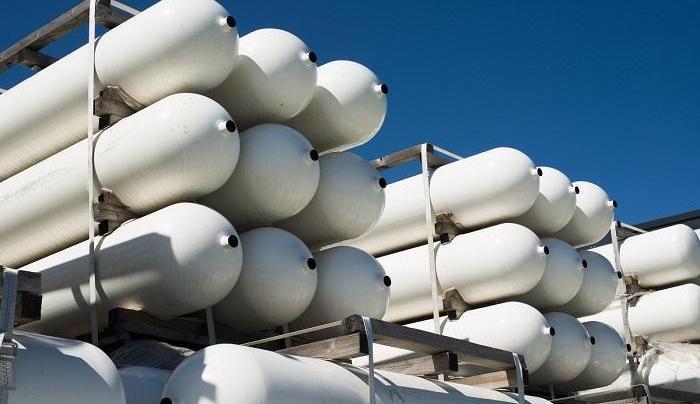The federal government has said it plans to cut as much as $4.4 billion off the country’s annual petrol import cost through the adoption of Compressed Natural Gas (CNG) as alternative fuel.
The government also announced its intention to convert approximately one million vehicles to CNG, with an estimated $890 million investment needed to establish infrastructure for the alternative fuel.
The coordinator, Regulations, Compliance and Facilitation, Presidential Initiative on Compressed Natural Gas, (PCNGi), Engr. Zayyan Tambari made this known while making a presentation at the Co-creation Session on Nigeria Gas Vehicle Monitoring System (NGVMS), in Abuja on Tuesday.
Tambari said that the government plans to substitute 20 per cent of the current 50 million litres of petrol consumed in the country daily with CNG.
Speaking earlier, the minister of State Petroleum Resources (Gas), Ekperikpe Ekpo stressed the government’s commitment to ensuring that the nation fully utilises its gas resources.
Represented by Engr. Abel Nsa, the minister noted specific materials and tools would be needed across the value chain to ensure a safe usage of CNG as fuel for vehicles.
“We are at the point where we need to begin to talk about the safety issues in the use of CNG. We have got to educate ourselves and we have got to use specific tools and materials hitherto that we have not been using.
“If you will recall what happened in 2009-2001 with the emergence of the cell phone during President Obasanjo regime, from an economic perspective, a lot is going to happen. It is going to give us a lot of tools on how to utilise CNG”, he added.
Also speaking, programme director and chief executive officer of P-CNGi, Michael Oluwagbemi, underscored the importance of transition to natural gas, saying that it is more affordable, cleaner, safer and more sustainable for the economy.
Oluwagbemi explained that the engagement was crucial for relevant bodies to discuss the steps that have been put in place by the federal government through its various regulatory bodies to address safety concerns about around the energy source
“In doing this transition, we need to make sure that the transition is smooth and ensure that any bad actors are identified and fished out, and that we all comply with the necessary basic technical regulations.
“In achieving this, we need the cooperation of all members of the ecosystem right from the point of inspection or conversion to the point of use, right from the point of manufacturing or importation of any part to the point of installation, there is a need that we have a very strong regulatory regime.
“And it also ensures that there are no incidents, no accidents. And so for us, this session is about bringing all the regulatory agencies, to discuss the steps that have been put in place by the federal government through its various regulatory agencies to ensure the safety of the members of the public and the industry actors in the emerging natural gas vehicle space,” he stated.
On his part, the executive director, Distribution System, Storage and Retailing Infrastructure, Nigerian Midstream and Downstream Petroleum Regulatory Authority, NMDPRA, Engr. Ogbugo Ukoha said the agency in its quest to promote the use of gas has gazetted two regulations that addressed technical framework and specifications for the development of gas retailing infrastructures and fuel quality standard.
Ukoha explained NMDPRA is pushing petrol station owners to set up CNG points in their facilities, adding that no new licence would be granted without a point to dispense CNG.
“The Authority is also engaging the stakeholders that would result in mandating fuel trucks and fleet owners and also facilities to convert to the use of CNG given the high cost of diesel”.











